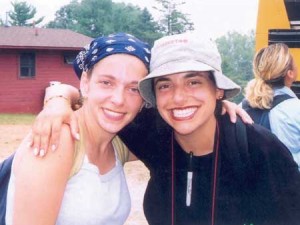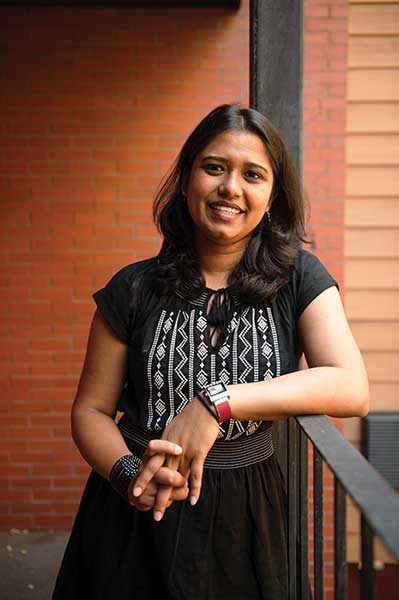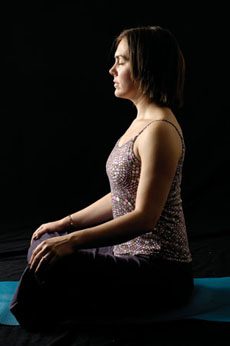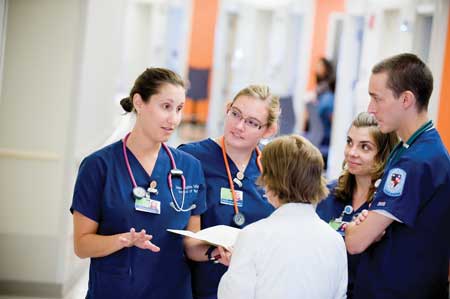
By Tanika Davis
At one of the lowest points in her life—waking up from a colonoscopy to be told that she had stage III rectal cancer—Eden Stotsky ’09 remembers that Johns Hopkins nurses were there for her.
“I had an amazing medical team,” says Stotsky, who was 26 at the time. “I still, to this day, remember the nurses who took care of me. I have become best friends with one of the nurses, and I’m still friendly with some of the others.”
In fact, this summer —at one of the best points in Stotsky’s life—those same Hopkins nurses were there. Stotsky got married June 13th, and her nurse-friends cried and danced and reveled in her happiness.
They had good reasons.
Stotsky, who was marrying the love of her life, was now going on 12 years cancer-free. And just a few weeks earlier, she had made another life change: She became a Hopkins nurse.
“Slowly but surely, over time, I realized that nursing is my calling,” she says. “Nothing is a better fit for me.”
Stotsky’s survivorship story is so awe-inspiring, her journey is the subject of a new documentary, produced by the Ulman Cancer Fund for Young Adults. The film, “Long After Cancer: An Insider’s Look at a Survivor’s Story,” is aimed at young people with cancer. It chronicles Stotsky’s low points and courageous moments, her uncertainty and hopefulness. She talks about exhaustion and nausea, but in just about every shot, Stotsky is smiling.
“I watch it sometimes, and I don’t even believe it’s my story,” says Stotsky. “It brings happy tears to my eyes. I hope it’s encouraging to other young adults that there is life after cancer—and not just immediately after cancer, but long after cancer.”
Stotsky, who was a program coordinator for the Office of Faculty, Staff and Retiree Pro-grams at the Johns Hopkins University when she was diag-nosed in 1997, exuded a refreshing optimism about her disease even from the very beginning.
She credits her medical team for modeling that kind of confidence.
“I never heard ‘You’re not going to survive this,’” Stotsky says. “I was told, ‘You’re so lucky. You really caught this in the eleventh hour. You’re very fortunate.’”
In 2002, Stotsky became a health educator/patient advocate for the Johns Hopkins Colon Cancer Center. In that job, she was able to do what was done for her—comfort and reassure patients.
As a recent nursing school graduate, her new job description still is being worked out, but Stotsky plans to maintain her role at the center and also be a nurse in the division of surgical oncology.
“I had the personal experience, and now I have the professional experience. I’m hoping I can marry the two to provide the best care possible to cancer patients and their families, to help them navigate their own journey and make it as manageable as possible,” she says. “Before I went to nursing school, I was missing that clinical piece. Now I feel like it has all come together.”
Long After Cancer can be viewed on the Ulman Cancer Fund’s website at www.ulmanfund.org
 Taking My Time
Taking My Time Keeping Her Hand in Hands-on Healing
Keeping Her Hand in Hands-on Healing Finding Balance Through Yoga
Finding Balance Through Yoga From Classroom to Clinical Residency
From Classroom to Clinical Residency







